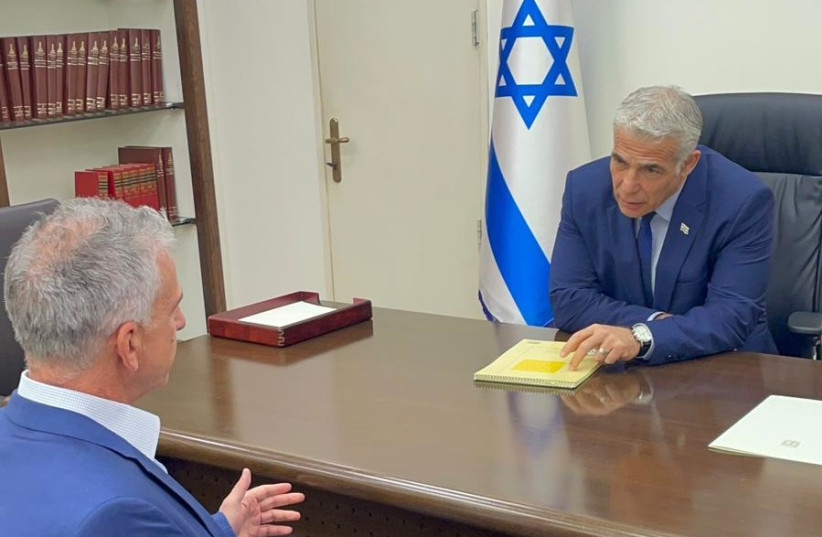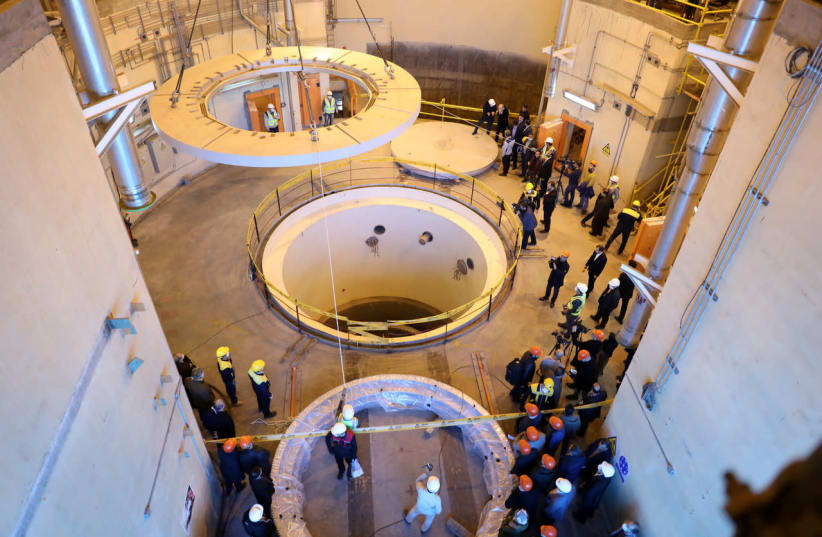Criticizing the United States for rushing into a terrible deal, Mossad Director David Barnea said on Thursday that a new nuclear pact with Iran would not block his agency from acting against the Islamic Republic to protect Israel’s security interests.
Barnea made the comments in a marathon of private meetings he held with Prime Minister Yair Lapid and other top government officials on Thursday.
“Israel has not signed on to the deal. Israel is permitted to defend itself in any way possible – and will act this way. We cannot sit quietly and just watch as the danger grows closer,” Barnea, who took over as spy chief in June last year, told them.
It seemed that Barnea’s feeling that a new deal was imminent led him to express his views forcefully and they are also expected to be relayed to the US.
In his meetings, Barnea dealt with the question of why the US would be more in favor than Israel of accepting what he called a dangerous deal, even though some of its forces in the Middle East could come into Iran’s crosshairs.


“We deal with Hezbollah, not the US. We deal with Islamic Jihad, not the US; and with militias and the IRGC in Syria. We need to deal with this. Clearly, the US can get up and leave [the region] one day; we cannot leave. We are here. There are also conceptual differences and in our worldviews,” he said.
The Mossad chief continued: “The strategic leaning by both the US and Iran to sign on to a new JCPOA [nuclear deal] does not change Iran’s long-term desire to obtain a nuclear weapon.”
In 2018, when the Mossad seized Iran’s nuclear archive from Tehran and brought it back to Israel, the archive helped brush aside questions about the Islamic Republic’s desire to achieve nuclear weapons capability “changing it from a data point to a fact,” he told the officials he met with on Thursday.
“Israel is not signed on to the deal. Israel is permitted to defend itself any way possible - and will act this way. We cannot sit quietly and just watch as the danger grows closer.”
Mossad Chief David Barnea
He said that Iran’s complete deception of the IAEA in 2015, and to date, would be an inextricable part of the picture of any new deal with the world powers downplaying Iran’s own lies to them.
Danger of the Iran Deal
Reviewing the impact of the potential new deal in his meetings, Barnea said it will only “increase the danger” to Israel and the world to a far greater degree than the original agreement that was signed in 2015.
Admitting that the new deal “pushes [nuclear] breakout from one month to six-to-seven months for getting to 90% enriched uranium,” he also noted that by 2025, Tehran’s path to weaponized enriched uranium would basically go back to a miniscule amount of time.
He was referring to the 2025 expiration date on limits to the number of centrifuges Iran installs.
In theory, the JCPOA and a new deal is supposed to limit Iran and allow it to enrich only a small amount of uranium at a low enrichment level until 2030, but Barnea’s point was that once Iran has installed a huge number of advanced centrifuges, if they decide to cheat, they could re-enrich everything they are giving away now and more in a very short time, almost by merely turning the new centrifuges on.
Further, he said that he was “gravely concerned” about the “hundreds of billions [of dollars]” that would be given to a “state sponsor of terrorism, which both destabilizes, and sponsors terror in the region, including militias, Hezbollah, the Houthis and Islamic Jihad in Gaza,” if sanctions are lifted.
What can be done about the Iranian threat?
Discussing with top officials the views of former senior Mossad and IDF officials such as Tamir Pardo, Tamir Heyman, Amos Yadlin and others, who have said that the impending new JCPOA would have many caveats, but is preferable to the current advanced nuclear threat with the Biden administration unwilling to use force, he pushed back.
“There are other elements that can be used besides overt military force,” he said, noting that without getting into all of them, continued sanctions “are better to make Iran weaker, poorer and more deterred, instead of making it stronger and more audacious.”
Barnea told those he met that the Islamic Republic, “does not distinguish, like we do. They sign a deal and they shoot at the same time,” at the parties they sign a deal with.
He said the ayatollahs have shown they have no compunction about trying to assassinate former senior US officials from the Trump administration [referring to plots against former US secretary of state Mike Pompeo and former national security advisor John Bolton] at the same time as they are talking about a deal with Washington.
Barnea also referenced, as an important part of the picture, dozens of attempted terror attacks by Iran and its proxies which Israel thwarted, though they have not been reported.
Although some observers have said that even after a return to the JCPOA, that Iran’s reputation as a highly corrupt nation could slow down a rush of new foreign investment, Barnea told those he briefed that, “as soon as the path is opened by removing sanctions, tons of money will go to Iran and this will significantly strengthen it economically.” •
